Get Wheelchair Ramp Installation in Fairfield County, CT
Local contractors in Fairfield County, CT, can install wheelchair ramps to improve accessibility for homes, businesses, and public spaces, addressing mobility challenges.
If property owners in Fairfield County, CT are considering the installation of a wheelchair ramp, they are likely exploring practical solutions to enhance accessibility and independence. Proper planning ensures that the project aligns with the specific layout and needs of the property, whether it’s a residential home, a commercial space, or an community building. Comparing local contractors can help identify experienced service providers who understand the unique requirements of the area, providing options that suit different property types and accessibility goals.
Finding the right professionals for wheelchair ramp installation involves evaluating local options to ensure quality craftsmanship and reliable service. Many property owners seek trusted local contractors who can help design and install ramps that meet safety standards and complement the property’s aesthetic. Continuing to explore available service providers can lead to informed decisions that support long-term accessibility improvements tailored to the specific needs of Fairfield County residents.
- Residential properties - homeowners may need wheelchair ramp installation to improve accessibility for family members or visitors with mobility challenges.
- Public buildings - public facilities and community centers often require ramps to comply with accessibility standards for all visitors.
- Commercial establishments - businesses in neighborhoods like Norwalk or Stamford may need ramps to accommodate customers with disabilities.
- Senior living communities - senior residences and assisted living facilities frequently install ramps to support residents with limited mobility.
- Event venues - temporary or permanent ramps might be needed for accessible entry at local event spaces and gathering locations.
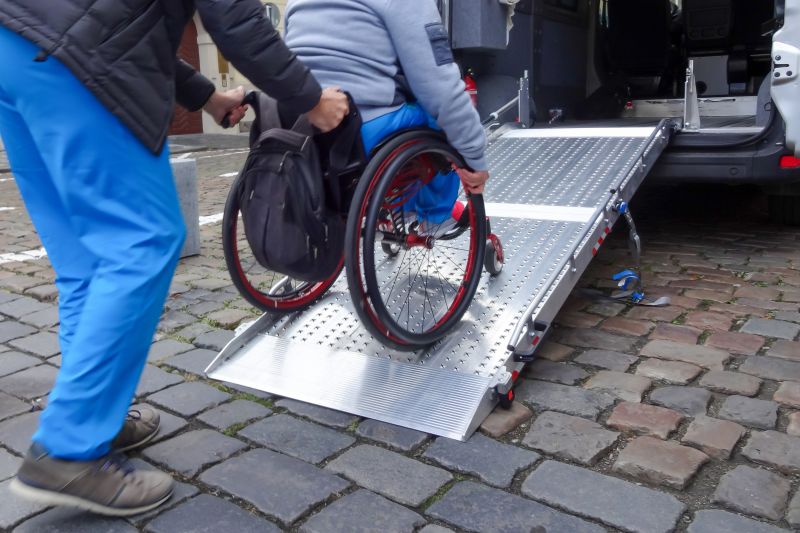
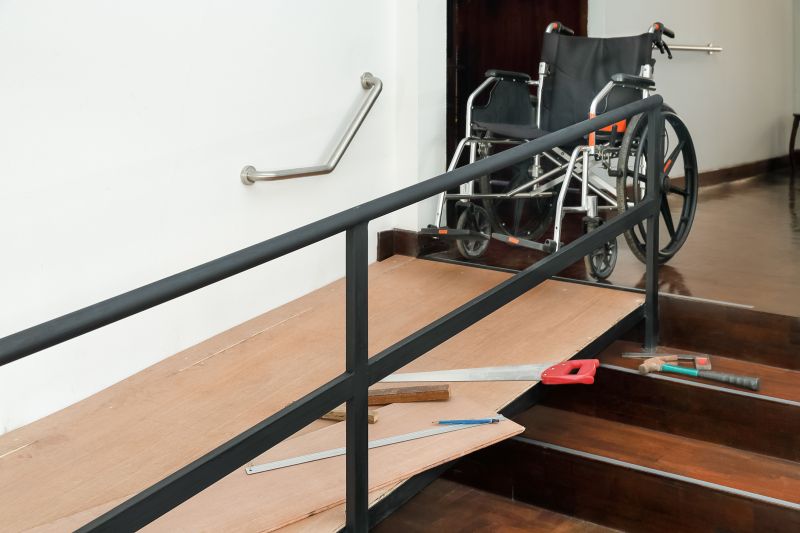
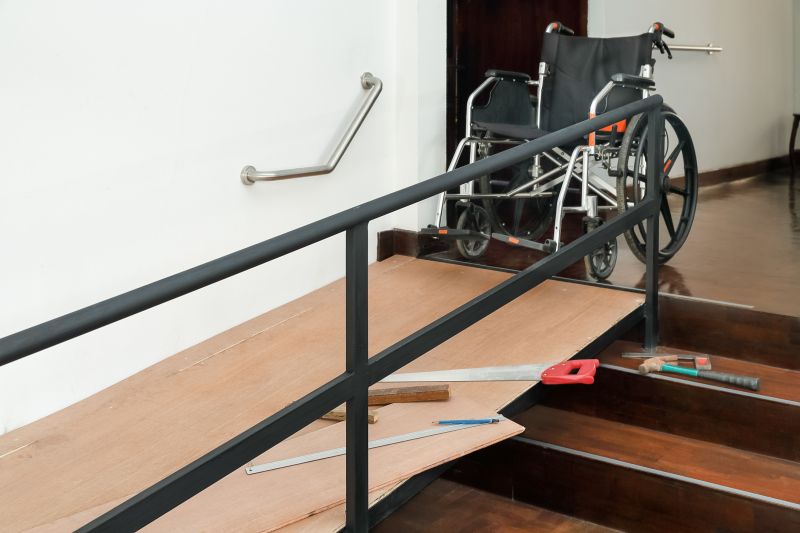
Wheelchair ramp installation services involve designing and building accessible ramps that provide safe and convenient entry points for individuals using wheelchairs or mobility aids. These ramps are custom-built to fit the specific layout of a property, ensuring a smooth transition from ground level to doorways or entryways. The process typically includes assessing the site, selecting appropriate materials, and constructing a sturdy, stable ramp that complies with practical accessibility needs. Service providers focus on creating solutions that are both functional and durable, helping to improve mobility and independence for residents and visitors alike.
This service addresses common challenges faced by homeowners and property managers when stairs or uneven surfaces hinder wheelchair access. For many, steps can become a barrier, making it difficult or impossible to enter a home comfortably or safely. Installing a wheelchair ramp offers a practical solution that eliminates these obstacles, allowing for easier movement in and out of the property. It can also be a vital modification for those recovering from injury or managing a chronic condition, providing a safer way to navigate daily life without the risk of falls or strain.
Wheelchair ramp installation is often needed for a variety of property types, including single-family homes, multi-unit residential buildings, commercial establishments, and public facilities. Residential properties frequently require ramps to accommodate elderly family members or individuals with disabilities. Commercial properties, such as offices, retail stores, and community centers, may also need ramps to meet accessibility standards and serve clients or visitors with mobility challenges. These installations are especially common in properties where existing steps or uneven surfaces prevent easy access, making ramps an essential feature for inclusive and accessible environments.
When considering wheelchair ramp installation, homeowners and property owners should evaluate their specific accessibility needs and property layout. Local service providers can assess the site and recommend appropriate solutions that enhance safety and usability. Whether it’s a simple portable ramp or a custom-built structure, professional contractors ensure the installation meets practical requirements and provides long-lasting support. This service is a valuable way to improve property accessibility, making daily activities easier and more comfortable for everyone.
The overview below groups typical Wheelchair Ramp Installation projects into broad ranges so you can see how smaller, mid-sized, and larger jobs often compare in Fairfield County, CT.
In many markets, a large share of routine jobs stays in the lower and middle ranges, while only a smaller percentage of projects moves into the highest bands when the work is more complex or site conditions are harder than average.
Smaller Repairs - For minor modifications or adjustments to existing ramps, local contractors typically charge between $250 and $600. Many routine jobs fall within this range, especially for simple fixes or upgrades. Larger or more complex repairs can cost more depending on scope.
Standard Ramp Installation - Installing a new, basic wheelchair ramp usually ranges from $1,200 to $3,000. This is a common price band for straightforward projects involving standard materials and moderate length or slope requirements. Prices can vary based on size and site conditions.
Full Replacement - Replacing an existing ramp with a custom or more durable design can cost between $3,500 and $8,000. Larger, more complex projects with specialty materials or unique site challenges tend to push costs higher, though most fall within this range.
Custom or Complex Projects - Larger, more intricate ramp installations, such as multi-level structures or those with special accessibility features, can reach $10,000 or more. These projects are less common and typically involve additional design and construction considerations.
Actual totals will depend on details like access to the work area, the scope of the project, and the materials selected, so use these as general starting points rather than exact figures.
Deck and Porch Ramps - Installing ramps for decks or porches involves similar planning, leveling, and material selection skills as wheelchair ramp installations.
Home Accessibility Modifications - Projects that modify entrances or interior spaces to improve accessibility require expertise in space planning and construction techniques used in ramp installation.
Exterior Staircase Construction - Building or replacing outdoor stairs involves precise measurements and structural work that align with the skills needed for ramp installation projects.
Garage Entryway Improvements - Creating accessible garage entrances often includes ramp integration, requiring knowledge of slope calculations and durable surface materials.
Commercial Entrance Renovations - Upgrading commercial building entries with accessible pathways involves similar planning and construction skills as residential wheelchair ramp projects.
Fence and Gate Installation - Installing fences and gates requires careful planning and precise installation techniques, comparable to the skills used in ramp construction and integration.
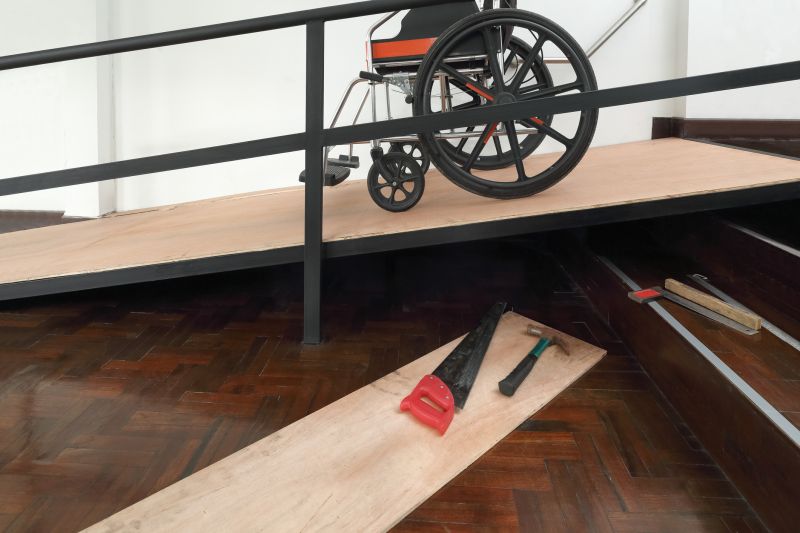
When comparing contractors for wheelchair ramp installation, it’s important to consider their experience with similar projects. Homeowners should look for service providers who have a proven track record of completing ramp installations in settings comparable to their own homes. This can include understanding the specific needs of mobility-impaired individuals and familiarity with the local building environment. A contractor’s history of handling projects of similar scope and complexity can help ensure that the installation will meet safety and accessibility standards.
Clear communication is essential when working with local contractors. Homeowners should seek providers who can articulate their process, materials, and any potential challenges in straightforward terms. Establishing written expectations early on helps prevent misunderstandings and ensures that both parties are aligned on project details. Good communication also involves responsiveness and the willingness to answer questions, which can contribute to a smoother experience from initial consultation through project completion.
Reputable references and a solid reputation within the community are valuable indicators of a reliable service provider. Homeowners can inquire about previous clients’ experiences or seek recommendations from neighbors or trusted sources. While the site introduces homeowners to local options, it’s ultimately important to verify the quality and reliability of each contractor. A well-regarded local contractor with positive references, experience with similar projects, and clear communication practices can help ensure the wheelchair ramp installation is completed to satisfaction, providing safety and accessibility for years to come.
Property owners in Fairfield County, CT use Wheelchair Ramp Installation services for practical projects around their homes and businesses. This guide focuses on everyday jobs and straightforward project options.
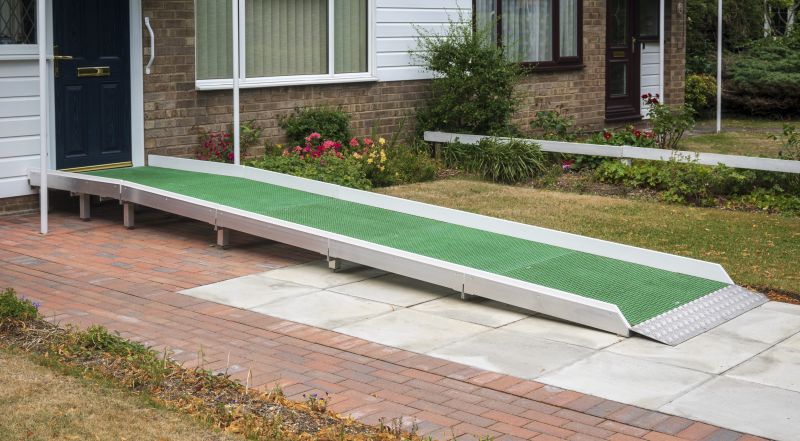
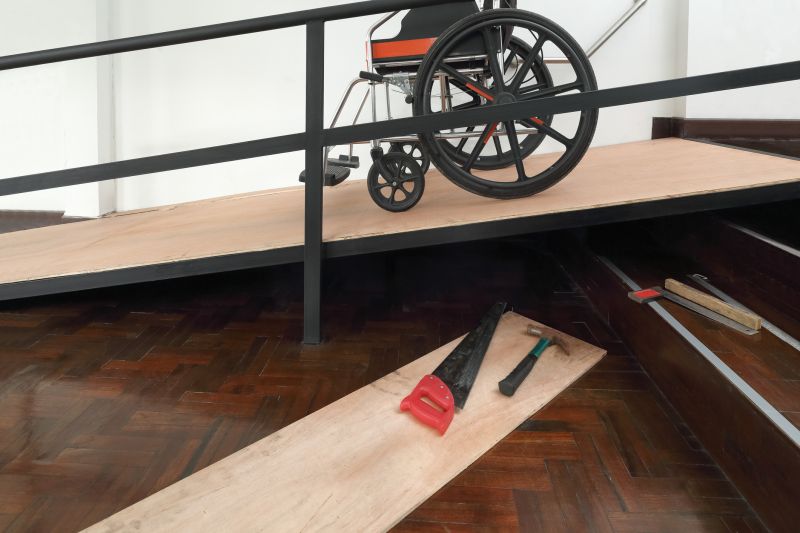
Wheelchair ramp installation is a common project for property owners in Fairfield County, CT who want to improve accessibility to their homes or businesses. Whether it's for a recent mobility change, such as a new wheelchair or walker, or to make daily entry easier for elderly family members, many residents seek professional help to ensure the ramp is safe and properly installed. Local contractors can handle a variety of situations, from creating gentle slopes for easier navigation to building sturdy, long-lasting ramps that blend seamlessly with the property’s exterior.
People often look for ramp installation services when making modifications to accommodate visitors or residents with mobility challenges. Property owners may need a ramp added to a porch, garage, or side entrance, especially if existing steps are difficult to navigate. Local service providers are equipped to assess different property layouts and recommend solutions that enhance safety and convenience. Connecting with experienced contractors can help ensure the installation meets individual needs and complies with any relevant guidelines.
What types of wheelchair ramps do local contractors install? Local service providers offer various options including portable, modular, and permanent ramps to suit different accessibility needs and property types.
How can I determine the best ramp for my home? Service providers can assess your space and mobility requirements to recommend the most suitable ramp solution for your situation.
Are there specific building codes or regulations for wheelchair ramps? Local contractors are familiar with regional building codes and accessibility standards to ensure the installation complies with applicable regulations.
What materials are commonly used in wheelchair ramp installations? Common materials include aluminum, wood, and composite materials, selected based on durability, safety, and aesthetic preferences.
How do local service providers handle the installation process? Experienced contractors typically handle site assessment, design, permitting, and installation to ensure a safe and functional ramp setup.
Accessibility Improvements - Installing a wheelchair ramp can make entryways more accessible for residents or visitors with mobility challenges. Local contractors can help create a safe, functional solution for everyday access needs.
Home Renovation Projects - Adding a ramp during a home upgrade can enhance convenience for family members or guests who use wheelchairs or walkers. Service providers can customize ramps to fit existing entrances seamlessly.
Outdoor Living Enhancements - Incorporating a wheelchair ramp into a porch or patio area allows for easier outdoor enjoyment and movement between spaces. Local pros can assist in designing durable ramps suited to outdoor conditions.
Business Accessibility Compliance - Installing ramps at storefronts or offices ensures compliance with accessibility standards and improves customer access. Local contractors can help create compliant, user-friendly entry points.

If you are thinking about Wheelchair Ramp Installation for a property in Fairfield County, CT, this guide is meant to help you understand the work, the typical project types, and how different options might fit your plans.
When you are ready, you can use the quote form on this page to share a few details about your project. From there, local pros can review the basics and respond with options that match what you have in mind.
